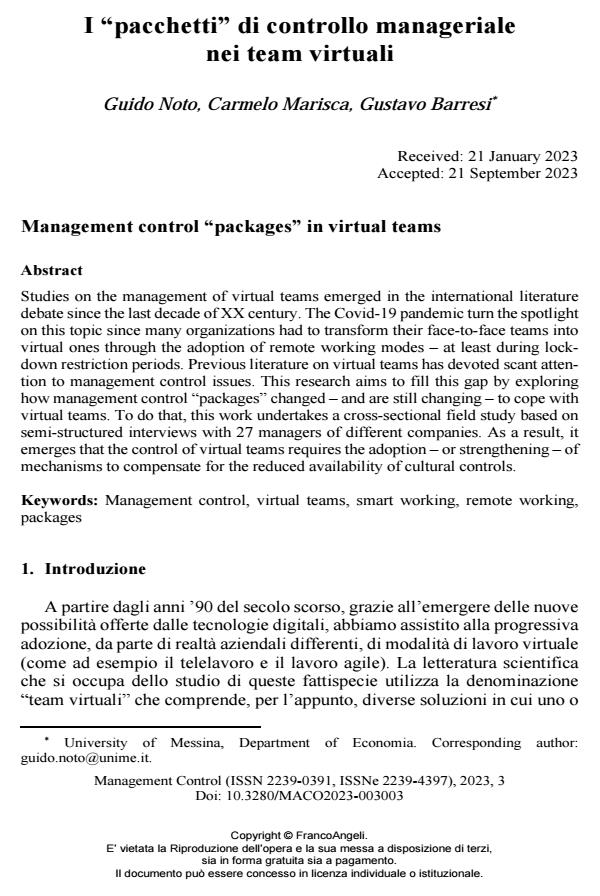Management control “packages” in virtual teams
Journal title MANAGEMENT CONTROL
Author/s Guido Noto, Carmelo Marisca, Gustavo Barresi
Publishing Year 2024 Issue 2023/3
Language Italian Pages 20 P. 43-62 File size 239 KB
DOI 10.3280/MACO2023-003003
DOI is like a bar code for intellectual property: to have more infomation
click here
Below, you can see the article first page
If you want to buy this article in PDF format, you can do it, following the instructions to buy download credits

FrancoAngeli is member of Publishers International Linking Association, Inc (PILA), a not-for-profit association which run the CrossRef service enabling links to and from online scholarly content.
Studies on the management of virtual teams emerged in the international literature debate since the last decade of XX century. The Covid-19 pandemic turn the spot-light on this topic since many organizations had to transform their face-to-face teams into virtual ones through the adoption of remote working modes – at least during lockdown restriction periods. Previous literature on virtual teams has devot-ed scant attention to management control issues. This research aims to fill this gap by exploring how management control “packages” changed – and are still chang-ing – to cope with virtual teams. To do that, this work undertakes a cross-sectional field study based on semi-structured interviews with 27 managers of different companies. As a result, it emerges that the control of virtual teams requires the adoption – or strengthening – of mechanisms to compensate for the reduced availability of cultural controls.
Keywords: Management control, virtual teams, smart working, remote working, packages
Guido Noto, Carmelo Marisca, Gustavo Barresi, I "pacchetti" di controllo manageriale nei team virtuali in "MANAGEMENT CONTROL" 3/2023, pp 43-62, DOI: 10.3280/MACO2023-003003